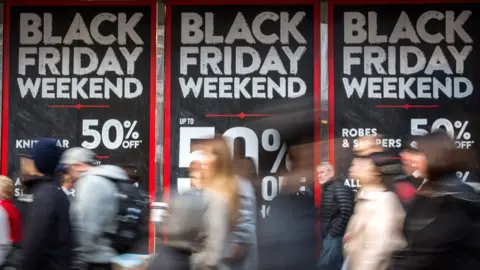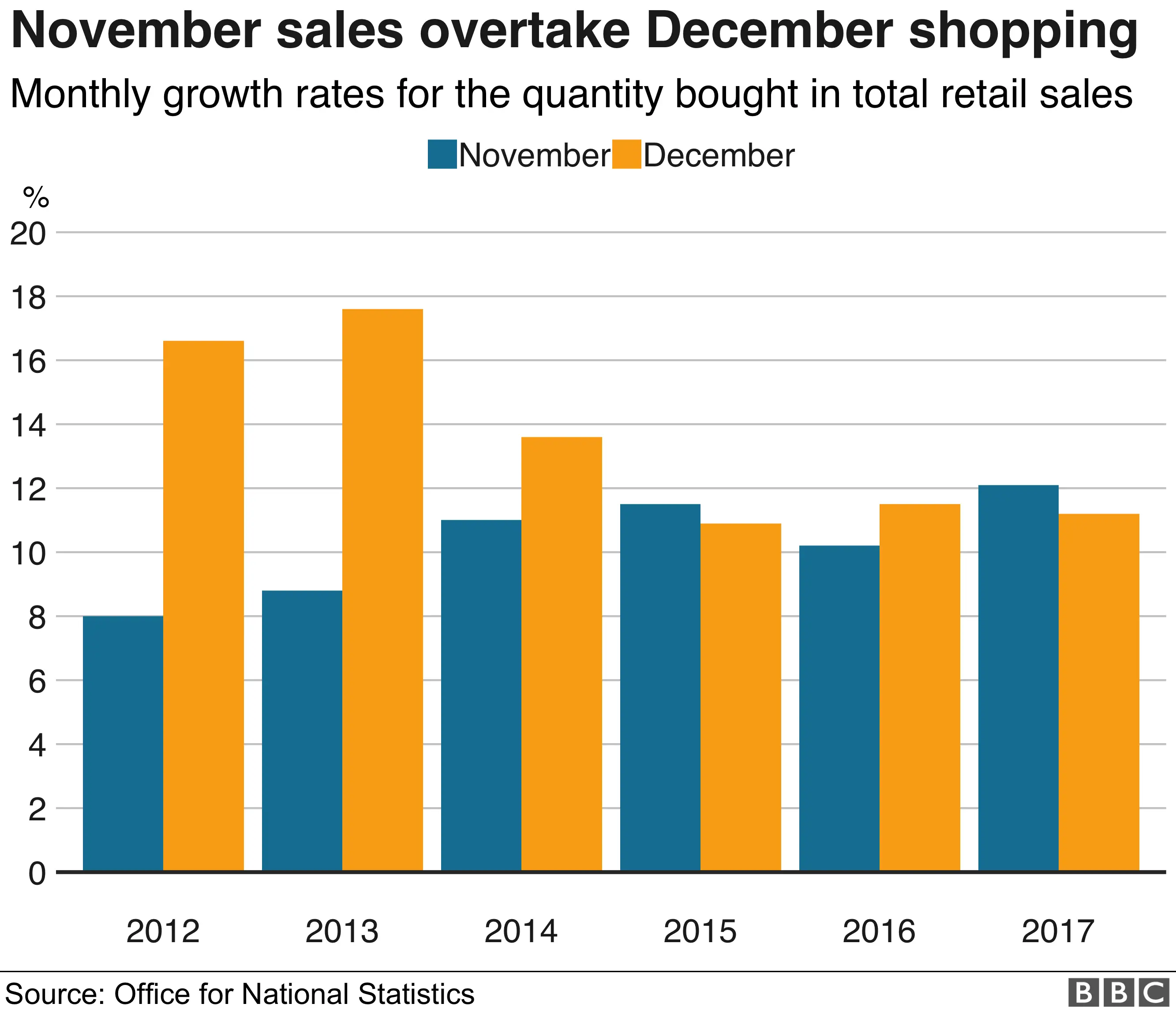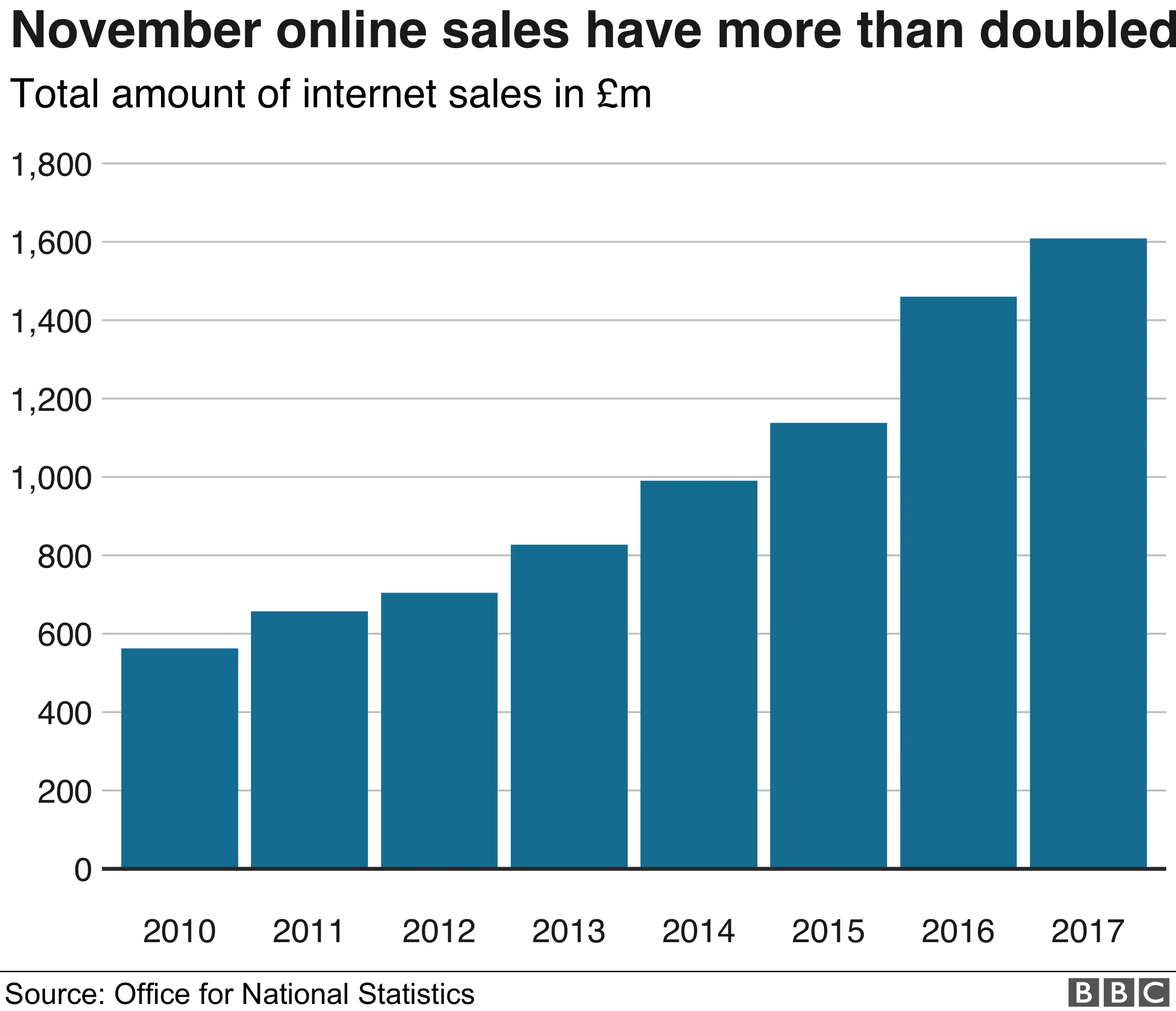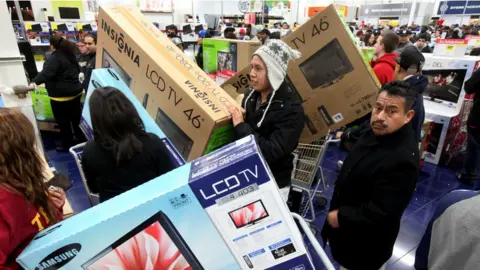Black Friday: How sales have changed how we spend
 Getty Images
Getty ImagesUK consumers are expected to spend over £2,000 each in the run-up to Christmas, according to research by Adobe.
Many will be hoping to make the most of any deals on offer. Black Friday - this Friday, 23 November - originated in the US, as a way of kicking off Christmas spending after Thanksgiving with the lure of great bargains.
Most British retailers are now in on the action. Emails offering discounts have been hitting inboxes for days. But a few, including some of the biggest chains in the UK, are opting not to join the frenzy.
So how is Black Friday changing the way people shop?
We're buying more in November
Black Friday sales will see discounts applied across the retail sector - from clothing to electrical goods.
In 2015, sales in Great Britain grew faster in November than in December for the first time, according to the Office for National Statistics.

December sales have been slowing down, as shoppers look to snap up a bargain earlier on in the build-up to Christmas.
Internet sales are on the up
Online retail giant Amazon is often credited with bringing Black Friday discounts to the UK eight years ago.
Now, the sales event, which is no longer limited to 24 hours, runs through the weekend and culminates in so-called Cyber-Monday. That's the Monday after Black Friday, when retailers cut prices for goods they're selling online.
According to the ONS, average weekly internet sales nearly tripled between November 2010 and 2017.

Last November, UK consumers spent over £1.6bn online every week.
With internet sales increasing, analysts have questioned what impact Black Friday and Cyber-Monday could have on struggling High Streets.
Rachel Lund, head of insights and analytics at the British Retail Consortium, said: "The results for footfall can be mixed. While many consumers hold off purchases until the end of November, many will take to the High Streets to scope out potential products to purchase come Black Friday.
"The rise of click-and-collect [order online, pick-up in-store] can also drive footfall back into town in the days following Black Friday."
How are companies coping?
Many offers in the shops and online will be on electrical goods such as TVs, tablets or laptops.
In 2017, Currys PC World saw their highest volume of sales of televisions on Black Friday, while Argos saw 13,496 shoppers visit its website every minute.
 Getty Images
Getty ImagesRetailers have been extending offers and opening hours to ease pressure on their staff, servers and delivery services. What started off as a one-day event has become "Black Friday week" in many stores.
Retail analysts have also said that some companies' profits have been hit by heavy discounting in the run-up to Christmas.
Department store chain Debenhams issued a profit warning in January 2018. Debenhams said that margins had decreased as shops compete to offer the best deals to attract customers. Baby goods retailer Mothercare also struggled after cutting prices early.
Some firms have other plans for Black Friday. Primark, Asda, B&Q and Marks & Spencer have said they won't be taking part in the flash sales event.
Several stores have said that they instead aim to offer value for money all year round. Others have made it a point of principle, saying that spending and over-consumption have a negative impact on the planet.
Retail analyst Clare Bailey commented: "Not participating makes sense for retailers like B&Q who don't sell products that lend themselves to Black Friday promotions.
"But for others, it just means that competitors will pick up the sales. That might not be the best thing to do in the current climate, when every pound counts."
Charts by Daniele Palumbo.
